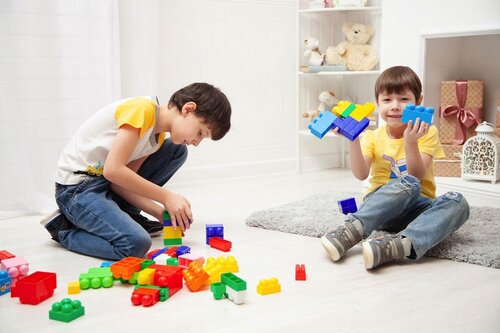Child and Adolescent Psychotherapy and Play Therapy – Journey Psychology
Journey Psychology provides specialist psychotherapy and play therapy to children and adolescents. Monique Cohen is the Principal Clinical Psychologist and owner of the practice.
Monique has always had an interest in the vast complexity of human emotion and thoughts, coupled with compassion and empathy, and this led her to pursue a career in Psychology. She completed her undergraduate psychology degree at Sydney University and went on to complete a Masters of Counselling and Masters of Clinical Psychology whilst working in the field, focussing on child (5-18 years) therapy. Monique is a full member of the Australian Psychology Society (A.P.S.).
She has held a number of different positions including Community Development Co-ordinator and Youth Health Educator, and spent over twenty years in the Department of Juvenile Justice working clinically with adolescents and supervising other clinicians. Monique managed a specialised counselling unit at Stanmore and at Liverpool for several years and held a clinical case load as well as clinically supervising other specialised psychologists.
She has operated a private practice in the Sutherland Shire for 20 years and Monique is engaged by the University of Sydney to train second year Medical Students regarding important aspects of psychology in medical practice.
Her vision of therapy is based on the fundamental belief that everyone is unique and has potential to change and grow. Everyone deserves thoughtfulness, respect, and kindness. There is no “one type of therapy suits all”. Every client deserves a considered, tailor-made therapy plan which is created from an in-depth analysis of their history, current situation, and the hopes for the future.
My approach to child therapy is structured on evidence-based child psychoanalytic theory. Children often present with grief, anxiety, bullying issues, low self-worth, self-harm, social problems, anger management problems and difficulties with confidence and assertiveness. Some children have the challenges of ADHD, ADD, Asperger’s Syndrome and autism.
I also see several children who have had significant traumas in their life and whose difficulties with emotions lead to somatic issues.
The play therapy techniques used involve talking and intense observation and clarification of the play which they demonstrate during the session. The child can choose from the sand tray, puppets, doll’s house, drawing, lego and a toy doctor’s kit. As sessions develop it is the interaction within the playing space where emotions are explored, diffused and are thus able to be held without spilling into unhelpful behaviours.
The first session involves meeting with the child’s parents/caregivers during which a detailed family history is taken and parental thoughts, observations and concerns are discussed. All sessions run for between 45minutes to 60 minutes.
The child is then seen for three sessions without their parents during which an assessment is formulated and a therapy plan developed. The assessment is also therapeutic and becomes the foundation for ongoing treatment.
After the third session, the adults meet in another session to discuss the assessment and determine the next step, Children are seen weekly and the length of treatment varies between 3 months and 2 years.
There are regular meetings with parents (usually at the beginning or end of each school term) and I greatly value parent’s updates in between sessions.
Adolescent therapy also involves a mix of “talking” therapy and sometimes sand tray therapy which is also used with children and adults. It provides a creative medium for clients to depict a picture or story about their world and in doing that, perhaps see it from a different perspective or use it to shed some intensity around difficult emotions.
It is the choice of the adolescent as to whether they use the sand tray in therapy. Adolescents commonly present with similar issues to younger children such as grief, anxiety, bullying issues, low self-worth, self-harm, social problems, anger management problems and difficulties with confidence and assertiveness. Some adolescents also have the challenges of ADHD, ADD, Asperger’s Syndrome and autism. I also see several adolescents who have had significant traumas in their life and whose difficulties with emotions lead to somatic issues. In addition to all this, they are trying to navigate the complex and challenging process of adolescence.
All sessions run for 45-60 minutes. There are regular meetings with parents and I greatly value parent’s updates in between sessions. Adolescents are usually seen weekly and the length of treatment varies between 3 months and 2 years. Sessions can become fortnightly as treatment progresses.
